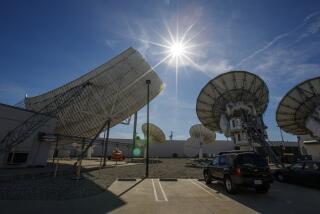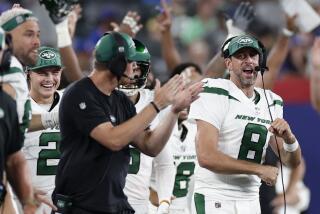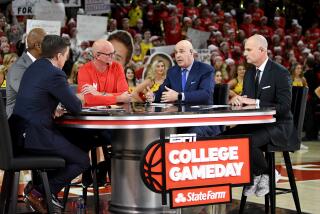Pact Reached on Sending Digital Television Signals
- Share via
WASHINGTON — The computer industry and the nation’s broadcasters, who have been at odds over development of a new generation of digital television sets, agreed Monday on how digital signals will be transmitted, but said the fight over other standards will take place in the marketplace.
While the agreement in principle means that digital TV appears to be a go, the two sides avoided several contentious proposals that would determine how digital sets would display broadcast signals.
The computer industry favored an all-digital standard, while broadcasters sought to preserve some compatibility with existing analog sets.
The agreement, which must be approved by the Federal Communications Commission, could mean digital TV will be available in the next five to seven years.
Once it’s available, consumers are likely to face a confusing array of products, with the prospect of spending thousands of dollars on equipment that could end up being obsolete.
But the lure of digital TV, which promises crystal-clear cinema-like video and compact-disc-quality sound, could prove irresistible.
“Today’s agreement . . . heralds the dawn of a new and even brighter day for over-the-air broadcasts and a future rich with computer-friendly and interactive programming possibilities for consumers,” FCC Commissioner Susan Ness said.
Once the FCC approves the new standard, broadcasters, computer companies and consumer electronics equipment makers will begin the long, costly transition to digital.
Chet Massari, general manager of Harris Corp., a major television equipment manufacturer, estimated that the broadcast industry will spend $3 billion over a decade to convert station production and transmission equipment to the digital format.
Despite the high costs, broadcasting and computer industry executives expressed enthusiasm for Monday’s agreement.
While acknowledging that “there could be incompatibilities” among digital TV sets, Paul Misener, a lobbyist for Intel Corp., hailed the agreement as “a great victory for personal computer users.”
Added Denis Wharton, a spokesman for the National Assn. of Broadcasters: “This is a major win for both broadcasters and consumers because it hastens the delivery of both digital and high-definition TV to American consumers.”
More to Read
The biggest entertainment stories
Get our big stories about Hollywood, film, television, music, arts, culture and more right in your inbox as soon as they publish.
You may occasionally receive promotional content from the Los Angeles Times.










